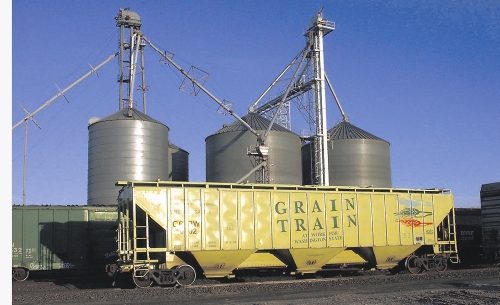forum
library
tutorial
contact

Northwest Lawmakers Introduce Bill to
Protect Snake River Dams
by Matthew Weaver
Capital Press, March 24, 2023
|
the film forum library tutorial contact |

|
Northwest Lawmakers Introduce Bill to
by Matthew Weaver
|
As conversations about the dams continue, it's "extremely helpful" to have
lawmakers showing their support for established studies that ruled out dam breaching,
 Agricultural advocates say a bill introduced in the U.S. House to protect the lower Snake River dams will help demonstrate support for the dams and the benefits they provide.
Agricultural advocates say a bill introduced in the U.S. House to protect the lower Snake River dams will help demonstrate support for the dams and the benefits they provide.
Reps. Dan Newhouse and Cathy McMorris Rodgers, both R-Wash., introduced House Bill 1762, the Northwest Energy Security Act, on March 23.
Sens. Jim Risch, R-Idaho, and Steve Daines, R-Mont., introduced a companion bill in the Senate, Senate Bill 966.
"The four Lower Snake River dams are integral to flood control, navigation, irrigation, agriculture and recreation in Central Washington and throughout the Pacific Northwest -- to put it simply, we cannot afford to lose them," Newhouse said in announcing the bill.
Newhouse said President Joe Biden, Washington Gov. Jay Inslee; Sen. Patty Murray, D-Wash., and Rep. Mike Simpson, R-Idaho, "have been misleading the American people with unscientific information in order to breach these dams, putting our communities at risk."
"I am growing increasingly concerned about President Biden's openness to breaching our dams," McMorris Rodgers said in the announcement. "From his administration's recommendation to rip them out -- without any scientific evidence to back it up -- to his desire to work with anti-dam advocates, it's clear our dams are in danger."
The legislation focuses "on facts and results," McMorris Rodgers said.
"It's time to recognize that salmon runs are improving at record rates thanks to our mitigation efforts and positive ocean conditions, and that the dams provide clean and reliable energy that powers our homes and businesses," she stated. "That's something worth protecting."
"Ultimately, it would be a challenge to get the bill fully moving" through Congress, said Heather Stebbings, executive director of the Pacific Northwest Waterways Association. "But it's recognition of the importance of this issue."
The association advocates for regional economic development.
As conversations about the dams continue, it's "extremely helpful" to have lawmakers showing their support for established studies that ruled out dam breaching, Stebbings said.
She pointed to a 2020 environmental impact statement, which ultimately did not recommend dam breaching. The federal government spent four years and $40 million to develop the statement.
"We believe it was based on the best available science," she said.
More recently, Inslee and Murray in 2022 released a report that determined dam breaching was not feasible without replacing their hydropower and economic benefits.
"Our members are supportive of the legislation and are hopeful that members of Congress will take serious consideration of the bill," said Sean Ellis, spokesman for the Idaho Farm Bureau Federation.
The legislation is "necessary," given all the benefits the dams provide to everyone who lives in the region, Ellis said.
Simpson spurred the conversations with his $33.5 billion salmon recovery plan that included tearing out the dams. Simpson has not introduced any dam-related legislation.
"If the choice is between flushing Idaho's Upper Snake River water downstream for four dams in Washington state, I choose keeping Idaho water for Idahoans," Simpson said. "Each year Eastern Idaho sends almost half a million acre-feet of irrigation water downstream for salmon recovery, that is water that is not being used to recharge our aquifer, not being used for irrigation, and our salmon are on the verge of extinction. This bill is simply a Hail Mary attempt that will not become law."
Ultimately, authorization to breach the dams resides with Congress.
"We have seen no appetite within Congress to take on something of this nature," Stebbings said.
During the recent White House Conservation in Action Summit, Biden said he is "committed" to working with Murray, Sen. Maria Cantwell, D-Wash., and Simpson to bring "healthy and abundant salmon runs" back to the Columbia River system.
Stebbings believes Biden's comments reflected federal support of salmon recovery in the Columbia River Basin. Farmers want that, too, she said.
"We support pretty much all aspects and all ways to help recover the species -- from culvert removal, to ecosystem restoration, to toxics reduction, to reintroduction," she said. "The only thing we don't support is dam breaching."
learn more on topics covered in the film
see the video
read the script
learn the songs
discussion forum
